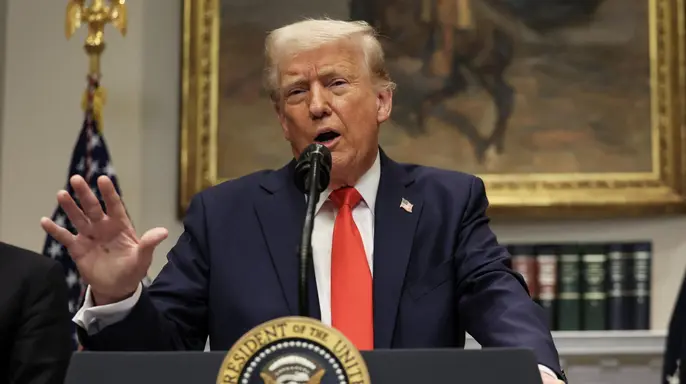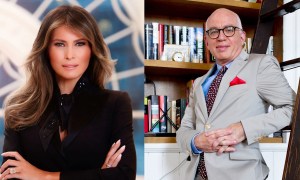President Donald Trump escalated tensions between the U.S. and the European Union on Thursday by threatening to impose a 200% tariff on alcohol from the EU in response to the region’s retaliatory 50% tariff on U.S. whiskey. This move further strained relations between two long-time trading partners.
Trump also intensified his rhetoric against the EU, which has historically been a close ally of the U.S.
“The European Union, one of the most hostile and abusive taxing and tariffing authorities in the world, which was formed solely to exploit the United States, has just imposed a nasty 50% tariff on whiskey,” Trump wrote on Truth Social. “If this tariff is not removed immediately, the U.S. will soon impose a 200% tariff on all wines, champagnes, and alcoholic products originating from France and other EU-represented countries. This will be a boon for the wine and champagne industries in the U.S.”
A spokesperson for the European Commission confirmed that the region’s trade minister had already contacted his American counterparts, and preparations for potential retaliation were underway.
Later that morning, Trump reiterated his stance, asserting that the U.S. does not have free trade but rather “stupid trade.” He claimed that the entire world is taking advantage of the U.S.
Despite Trump’s claims, the U.S. remains the world’s largest importer of both wine and champagne. Wine alone accounts for $4.9 billion in annual sales, while champagne and sparkling wine exceed $1.7 billion. However, U.S. exports of wine rank fifth globally, with sales of about $1 billion, while exports of champagne and sparkling wine total just $67 million, placing them 12th in the world.
The tit-for-tat tariffs could significantly impact U.S. consumers, who rely heavily on imported goods, rather than the manufacturers themselves.
In a statement, the Distilled Spirits Council of the United States, representing alcohol manufacturers in the country, urged President Trump to reach an agreement with the European Union over the impasse. They emphasized that neither region’s liquors have been subjected to tariffs for several decades.
“We strongly urge President Trump to secure a spirits agreement with the EU to restore zero-for-zero tariffs, which will create job opportunities, boost manufacturing and exports for the American hospitality sector. We want toasts, not tariffs,” said Chris Swonger, President and CEO of the Distilled Spirits Council.
Trump has made using tariff threats against steadfast U.S. partners a core practice of his early second administration. The latest escalation demonstrates that he has no intention of ceasing this approach, despite the protests from economists and business groups about the adverse effects of such policies. On Wednesday, Trump’s most extensive tariffs regime, targeting all steel and aluminum imports into the U.S., came into effect. In response, the European Union and Canada announced their intention to impose retaliatory duties on U.S.-made products.
The President has repeatedly suggested that the U.S.’s substantial trade deficit with the rest of the world is a sign of weakness. While acknowledging that his tariffs strategy may lead to a temporary period of economic transition for the U.S., which has exhibited signs of instability in recent weeks, he remains confident that it will ultimately emerge stronger.
On Thursday morning, Commerce Secretary Howard Lutnick provided additional context to Trump’s latest criticism and specifically highlighted the EU’s targeting of products from states with strong support for the President.
“The President was deeply upset about the Europeans’ actions, and you can expect to hear from someone who genuinely cares about America,” he said on Bloomberg Television. “He cares about America and wants to take care of its people. Why are Europeans targeting Kentucky bourbon secretary Harley Davidson motorcycle? It’s disrespectful.”
Lutnick further explained that Trump aims to “strike a balance” in trade relations with the European Union. “We are your largest and most significant trading partner. Treat us with respect, and let’s find a mutually beneficial arrangement,” he emphasized.
However, the market’s reaction to Trump’s approach has been predominantly negative. Major stock indexes have now reversed their post-election gains, as investors fear higher costs. On Thursday, stock futures immediately fell in response to Trump’s latest announcement, although losses were somewhat mitigated by a favorable inflation report.
Most academics argue that the ability of U.S. consumers and businesses to import goods at low prices primarily leads to higher living standards and more efficient output for companies.

















